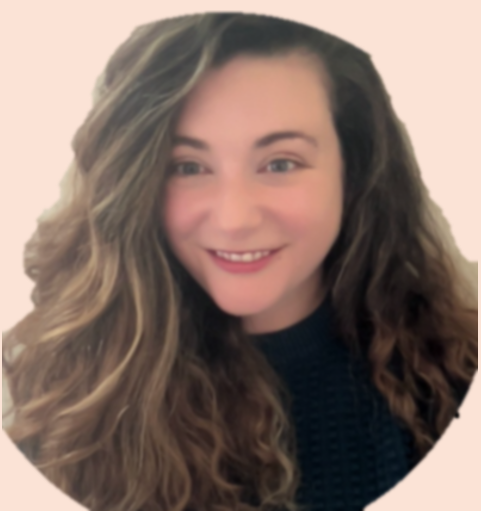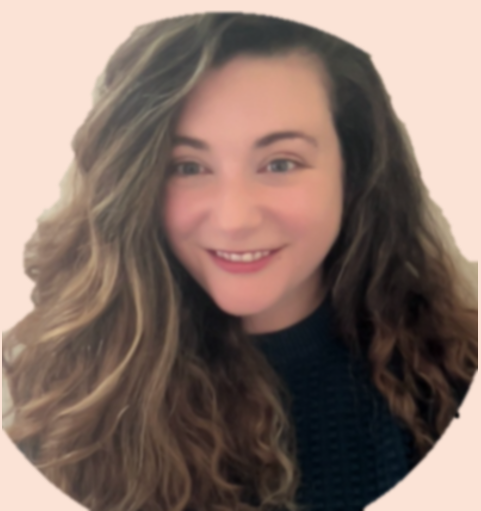
A conversation with Victoria Sale
In this interview, I had the pleasure of speaking with Victoria Sale, co-founder of Our Lived Experience (OLE), about the critical role that lived experience plays in driving meaningful, sustainable systems change. Victoria brings a wealth of knowledge from her extensive work in community health and systems transformation, where she focuses on bridging the gap between social innovators with lived expertise and the organizations that seek to implement impactful, community-driven solutions. Throughout our conversation, Victoria highlighted the challenges of oversharing in this space, the importance of authenticity in professional relationships, and the need for a strong support system to amplify the voices of those with lived experience.
Can you talk a bit about why lived experience is useful in community health settings?
Sure. To really answer that, I think I need to back up and give some context about our lived experience and how it was formed.
Basically, I was doing community health consulting around the country with various health systems. As we engaged with different communities, I kept coming across these amazing grassroots organizations and individuals who had built models based on their own lived experiences—whether that was homelessness, addiction, or incarceration. These models were incredibly successful, but the challenge was that nobody knew how to find them or even how to search for them online.
There’s this network of grassroots innovators who truly understand the nuances of making things work in some of our nation’s biggest social service sectors. And there’s a huge difference between models that are implemented for populations versus models implemented with populations. It’s the nuances in how these services are delivered that make a real impact, and people with lived experience just naturally understand that.
Let me give you an example. There’s a man named Don Williams in South Carolina who started an organization called Jumpstart after his experience with incarceration. One of the standout features of Jumpstart is a 30-day respite period, which is pretty much unheard of in other models designed for people reentering society. It’s a transitional and reentry program, and they actually start the curriculum inside the prison. But the 30-day respite, which happens after someone is released, is what really sets it apart. During that time, they don’t allow participants to work or do anything but rest and recover. This period is transformational for people’s healing and their ability to reclaim their lives.
That’s such a small but crucial detail that makes all the difference. When people do start looking for a job, they’re so much more prepared and able to handle all the new stressors of life than if they had been rushed into employment immediately. These nuances, these little things, are difficult to predict unless you’ve lived it yourself. People with lived experience naturally understand these details, and instead of having to constantly tweak and refine a model, you’re getting something much closer to the right solution from the start, thanks to their perspective.

Your story doesn’t always have to be the main way you connect with people. Authenticity is what really matters. You don’t need to share every painful detail to be credible—people respect you for being genuine.
What are some of the some of the reasons why developing a network of people with lived experiences may help to their work?
We developed this network specifically for people with lived experiences, and language is key here. For us, “lived experience” means you’ve been through something significant in life—something we all have to some degree. “Lived expertise,” however, goes a step further. It means not only have you lived through something, but you’ve also studied it, either academically or practically, and have learned how to use that experience to teach or build models, for instance. Then there’s “practical wisdom,” which refers to applying a concept across different settings, even if you haven’t personally experienced the exact circumstances.
Our network primarily consists of individuals with lived expertise. These aren’t just people who’ve had experiences; they’ve become thought leaders and model builders because of them. They bring a depth of understanding that combines both lived expertise and practical wisdom.
This is crucial because, in many social service sectors, funding often flows through large systems like healthcare or educational institutions. When these organizations receive significant grants, the recipients usually have backgrounds that don’t connect directly with those on the ground—people who have faced issues like incarceration or homelessness. Their networks are more academic, and when they receive grant money, they tend to reach out to familiar institutions or large consulting firms like McKinsey and Deloitte.
What happens then is a few models and thought leaders get repeatedly used across the country. There’s a lack of access to a network of grassroots innovators who have the lived expertise to provide valuable input and co-create solutions. These are people who have considered these issues from multiple angles and have personal experience with them. Right now, there isn’t a straightforward way for leaders in healthcare systems to connect with these grassroots experts. This network aims to bridge that gap, providing a clearinghouse for these innovators to share their insights and collaborate on creating more effective models.
What do you see as the primary goals of Our Lived Experience and what you want to achieve with it?
Our main goal is really to provide support—to be the “backup dancers” for amazing innovators, if you will. Right now, we find ourselves working in a few different areas. One of those is providing backend operational support. For instance, some people are landing large contracts, sometimes in the hundreds of thousands of dollars, for the first time, and they need help managing their budgets, especially when it’s government or federal funding. So we step in to handle some of that backend operational work.
In other cases, we’re more of a strategic thought partner, helping them bring their vision to life. Ultimately, it’s about giving the innovator whatever support they need to achieve their goals. But overall, we aim to connect them to a larger platform. Ideally, instead of executives going online to Google “evidence-based models for reentry programs,” they could come to our clearinghouse and find someone with lived expertise who could help address the needs in their community.
Can I ask you a really tough question, one that you’ve asked me before? How do you do this work without tokenizing people or just checking off boxes?
I think a couple of things are key here. First, everyone in the network wants to be part of it. These are people who have models, ideas, or training they want to share with the world. So, they’re actively seeking broader connections, which is important—they’re not just being randomly selected.
Second, I don’t think it’s tokenizing if the executive or leader is genuinely trying to incorporate the perspective of someone with lived experience. That’s where Our Lived Experience (OLE) plays a crucial role, serving as a bridge that helps foster an environment where the person with lived experience feels respected and valued. It’s not just about giving them a seat at the table to check a box and call it equity; it’s about truly listening and incorporating their input as a subject matter expert. Treating them with dignity and actually integrating their insights into the work is what makes it meaningful. That’s a big part of avoiding tokenism.
What advice could you give for someone who’s just so early someone or some organization that’s really early on this journey? What should be some of the first steps that they take?
You mean the executive, like administrators or the people with lived experience?
I guess both. That’s a good distinction. How should administrators begin and how should you know, people with lived experience begin?
For innovators, I think it’s really about becoming part of a community where you feel supported. You should be able to walk into a room and own your expertise. I was recently on a call with some folks who had lived experience with human trafficking, and they emphasized the need for a strong facilitator—someone who really listens to what they’re saying and can then make the academic connection, like “what they’re actually talking about is this.” They shared how, in the past, they felt they had overshared and been hurt by that, and what they really wanted was someone who could shepherd their experience in a way that respected and valued it.
So, if you’re just starting out as a person with lived experience, I’d say surround yourself with people who make you feel like an expert, who truly honor and value your perspective. Build partnerships where you feel respected and empowered to create what you want to build.
And for those on the administrative side, I’d advise finding ways to connect with that kind of expertise and support.
You brought up something that I don’t think anyone has really put into words before—the idea of oversharing. In genuine relationships, especially when people are asked to bring their whole selves into community health work, it can sometimes lead to disclosures that feel uncomfortable afterward. What guidance do you have for navigating that? How can someone be authentic while also maintaining professionalism?
Yeah, I think that’s a line everyone has to determine for themselves. There’s no one-size-fits-all answer. It’s really about thinking through your story beforehand and asking yourself, “If this ended up on the front page of the news tomorrow, would I be comfortable with everyone knowing this part of my story?” It’s a matter of calibration.
When I interview people with lived experience or when we discuss their stories, I always make it clear: just because I ask a question doesn’t mean you have to answer it. It’s never worth going back to a bad place just for the sake of an interview. Nothing I ask is meant to make anyone feel uncomfortable, but if you start to relive something that feels tough, that’s a sign you should stop.
This ties back to our earlier conversation about supporting people with lived experience, especially when they’re working in frontline roles. It’s important to consider how often you retell your story and in what contexts. And remember, your story doesn’t always have to be the main way you connect with people. Authenticity is what really matters. You don’t need to share every painful detail to be credible—people respect you for being genuine, not for reliving every hardship. That’s a big part of it.



